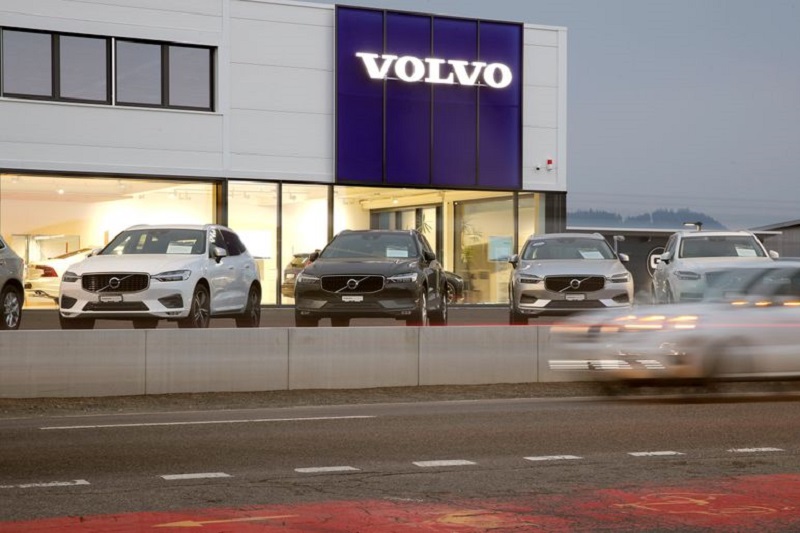Stock market today: S&P 500 climbs as health care, tech gain; Nvidia earnings loom
Investing.com -- Volvo (OTC:VLVLY) Cars (ST:VOLCARb) on Thursday reported a drop in operating profit in the fourth quarter of 2024, as the company navigated through challenging market conditions, sending its shares down over 9%.
While the automaker continued to post solid results for the year overall, Q4 results reflected some of the pressures facing the company.
“The global car industry is facing several uncertainties: cyclical, structural, transformational and geopolitical,’ said Jim Rowan, chief executive at Volvo Cars in a statement.
In the last quarter of 2024, Volvo’s revenue rose to SEK 112.1 billion, an increase from SEK 109.4 billion in Q4 2023.
“We have navigated this environment better and faster than many of our peers, but we and the rest of the industry will be severely tested this year,” Rowan added.
However, its operating income, excluding joint ventures and associates, saw a decline, falling to SEK 6.3 billion from SEK 6.7 billion in the same period the previous year.
The group’s overall operating income dropped more sharply, down to SEK 3.9 billion from SEK 5.4 billion in Q4 2023.
As a result, the company’s EBIT margin (excluding joint ventures and associates) decreased to 5.6%, compared to 6.1% in Q4 2023.
The overall EBIT margin stood at 3.4%, down from 4.9% in the same period last year. The basic earnings per share also fell to SEK 0.84 from SEK 1.04 a year earlier.
A significant factor in the weakened profit for the quarter was a SEK 1.7 billion write-down related to assets in the NOVO joint venture.
This financial adjustment came ahead of Volvo’s full financial control of the NOVO venture, which also impacted the company’s operating results.
Additionally, gross margins for Q4 were affected by a one-time effect from the sale of on-balance sheet cars, which caused both revenues and cost of sales to rise, ultimately lowering the gross margin to 17.1%.
This was compounded by a larger-than-expected reduction in inventory during the quarter compared to the previous year, further straining margins.
The mix of car models and sales channels, as well as pricing pressures across the market, also weighed on profitability, though some of this was offset by a more efficient cost structure for new car sales.
Despite these challenges in Q4, Volvo Cars saw a improvement in its free cash flow, which turned positive at SEK 13.6 billion, compared to SEK 6.1 billion in Q4 2023. Full-year free cash flow also improved, ending at SEK 1.1 billion, a significant turnaround from the SEK –9.0 billion reported in 2023.
Volvo anticipates a challenging 2025. Despite resilience, especially in EVs, they foresee continued weak market conditions, citing increased competition and geopolitical issues impacting sales and profitability.
Their order book, which previously supported growth, has normalized, reducing customer lead times but posing a growth challenge.
